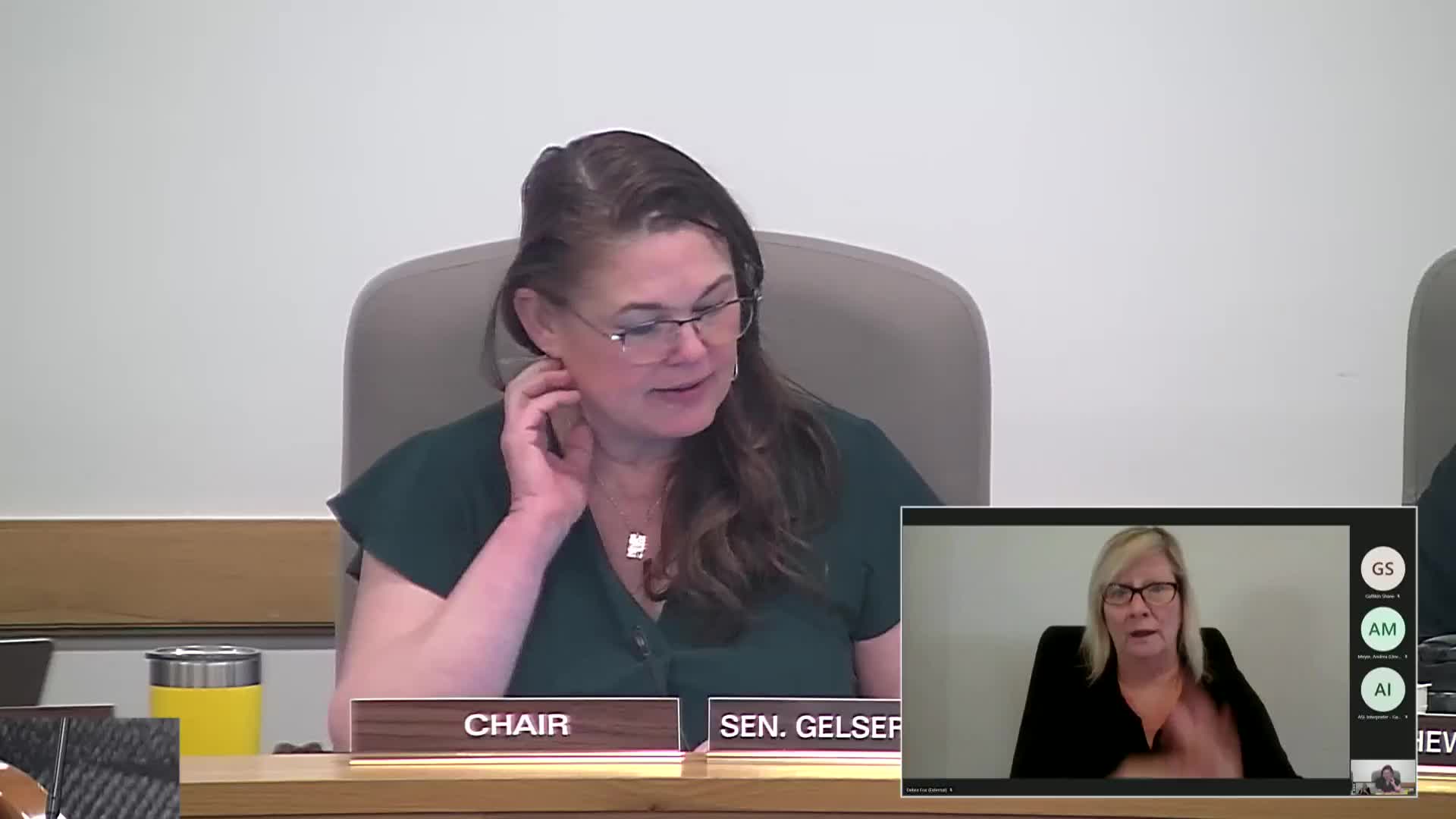Amendment to SB 739 would set faster investigations and require family notifications after serious incidents
Get AI-powered insights, summaries, and transcripts
Subscribe
Summary
Sen. Gelser Bluen opened consideration of the dash‑3 amendment to Senate Bill 739 March 18 and asked committee staff to present the replacement text; staff said the amendment would require on‑site investigations within 24 hours for complaints alleging death or serious physical injury and add family notification requirements after substantiated findings.
Sen. Gelser Bluen opened consideration of the dash‑3 amendment to Senate Bill 739 March 18 and asked committee staff to present the replacement text; staff summarized the amendment as a rewrite that focuses on enforcement, investigation timelines, administrator requirements and family notification.
Committee staff said the dash‑3 "modifies the requirements and procedures for the Department of Human Services to enforce regulations and investigate reported licensing violations and other deficiencies" and would require on‑site complaint investigations "within 24 hours or before the end of the next business day" if a complaint alleges a licensing violation that results in death or serious physical injury. The amendment would also require ODHS to issue memory‑care endorsements only to experienced applicants and to collect contact information for people who should be notified about regulatory actions.
Context and intent: Chair Gelser Bluen said the amendment stems from recommendations that followed the Mount Hood Senior Living closure and a rapid‑response review of ODHS’s oversight. The amendment narrows some earlier, broader proposals while adding stronger notification and disclosure rules for substantiated investigations and licensing conditions.
Key provisions described to the committee included: triage language that requires immediate on‑site investigation for allegations of death or serious physical injury and "without undue delay" timing for other complaints; a requirement that investigators interview witnesses beyond facility staff, including residents, families and ombudsman representatives; language requiring the department to include in its investigative report other problems encountered during the inquiry; written summary reports to the long‑term care ombudsman and the facility after substantiated findings; posting license conditions in a facility's entryway until lifted; and a requirement that, in certain cases, facilities notify residents and named contacts about substantiated findings and licensing conditions.
Concerns and pushback: Provider representatives and trade groups said the dash‑3 contains significant operational and cost implications. The Oregon Health Care Association (Libby Battlin) and Springs Living (Brenda Conley) warned that mandatory consultant retention and broad notification requirements could be costly, possibly unworkable, and could outpace the available consultant workforce. Conley said a facility with roughly 75 residents could face hundreds of notifications once primary and alternate contacts are tallied, and she described long delays in receiving licensing investigation summaries in an example case she provided.
The state long‑term care ombudsman, Fred Steele, urged caution on any move to extend two‑year renewal cycles or weaken unannounced inspection practices; Steele said scheduled inspections created through collective bargaining have reduced the ability to find problems proactively. AARP Oregon (Andrea Meyer) and family members urged clearer statutory language around the threshold that triggers broad family notification, saying the measure should target only risks that present serious or ongoing threats to resident safety.
Family testimony: Several family members and advocates described personal harm and disrupted placements during the Mount Hood Senior Living closure, and asked that the statute better require timely, transparent communication when substantiated violations or license conditions arise. Melissa Fisher, who testified as a family representative, described multiple moves of a relative after Mount Hood’s closure and urged the committee to pass stronger notification and investigation requirements.
Next steps: Committee members and staff said the dash‑3 amendment narrows some proposed language but still needs work on notification thresholds, use of consultants, exception processes, and the statutory authority for certain agency exceptions. Chair Gelser Bluen closed the SB 739 hearing and scheduled at least one more public hearing on April 1 to take further testimony and amendments.
